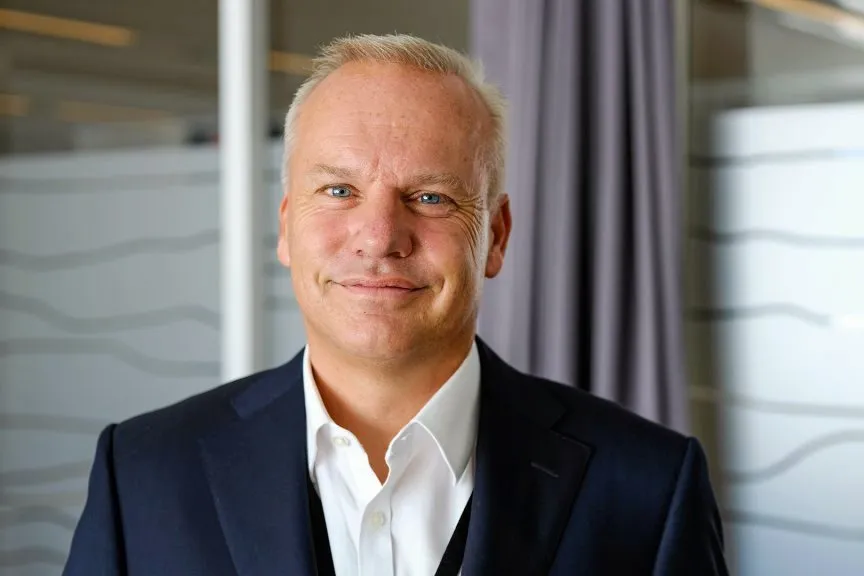'Bottom of the league' | Trump-inspired move against Empire Wind does untold damage, analysts warn
'New information' said to show that Empire Wind 1 permits are sullied by 'serious deficiencies'

The halting of offshore wind projects such as Empire Wind 1 under a federal review of permitting ordered by President Donald Trump will deter foreign investment by sowing uncertainty in the sector, analysts have warned.
In a letter to the acting director of the US Bureau of Ocean Energy Management (BOEM), Burgum claimed that the approvals were "rushed through by the prior administration... without sufficient analysis or consultation among relevant agencies as relates to the potential effects from the project”.
Equinor was ordered to cease all construction activities on Empire Wind 1 “until further review is completed to address these serious deficiencies”.
'Highway robbery'?
The open-ended order was met with sharp criticisms and warnings by sector analysts.
“Offshore wind projects are long-term, capital-intensive infrastructure projects. Their development and execution spans over many years and hence two to three governmental administrations,” wrote Raya Peterson, global lead for offshore wind with Danish engineering and consultancy firm Ramboll, in a LinkedIn post.
“They rely on regulatory certainty to make decisions. Reputable developers do business in those markets that provide this. Investors and lenders will not invest their capital in markets where fully permitted projects are halted for obvious political reasons”.
Philip Totaro, founder and CEO of market intelligence firm Intelstor described the measure as “more like highway robbery than judicious policy-making”.
“These companies have paid hundreds of millions of dollars in some cases for leases,” he noted.
Totaro warned that the measures will deter foreign investment in the US, especially in the offshore wind sector.
Go to the back
“This moves the USA straight to the bottom of the league tables for developing markets for offshore wind,” Totaro wrote on LinkedIn
“Now every single offshore wind farm in the USA will need to go to court to litigate the right to build the projects for which they already received approval.”
At Equinor’s capital markets update in February, CEO Anders Opedal nevertheless ruled out suggestions that Empire Wind 1 should be scrapped, seeing as the project has $2bn already invested, supply contracts signed and would face cancellation costs.
Equinor's de-risking efforts, prior to Trump taking office, have included a successful re-bidding of offtake for an uplift of more than 30% from the original strike price, as well as putting in place project financing with a 5% interest rate hedge.
Back in February, Opedal was already acknowledging the risk that tariffs could weigh on the project, while pointing out that the company has already issued orders in the US for some items, including cables.
“A substantial part is coming from Europe, for instance, the [wind turbines] will be produced in Europe by Vestas. Clearly (tariffs are) on our radar, but it's too early to say what the potential impacts will be,” he told analysts then.
More questions are now being asked about whether this project can be made to fit within a strategy of high-grading its portfolio and achieving double-digit returns.
'Uphill battle'
“They guided for returns (on investment) just above 4%, in a market where even 6-8% is viewed as insufficient, leaving almost no margin to absorb setbacks.”
In its own response to the order halting construction work on Empire Wind 1, Equinor stated that it will engage directly with BOEM and the Department of Interior to understand the questions raised about the permits received from authorities.
“We will not comment about the potential consequences until we know more,” the company stated.
“Empire Wind 1 is already under construction and will provide an important source of energy to meet New York’s rapidly growing electricity demand,” the company stated, listing construction of the South Brooklyn Marine Terminal to “revitalise a long-neglected port” and contracting of the ECO-Liberty Service Operations Vessel (SOV) being built by Edison Chouest in Louisiana.
'Destroying jobs'
Ramboll's Peterson wrote that “halting the permit for Empire Wind 1 just as it gears up for construction and with fabrication of components already in full swing is another unprecedented and escalatory step against offshore wind in the US."
He warned that measures are “destroying American jobs and domestic energy production”.
“On top it raises doubts that the US is a serious partner for business,” he added.
Empire Wind I is targeted to enter full commercial operation in 2027 with 54 Vestas 15MW turbines and power 500,000 homes.